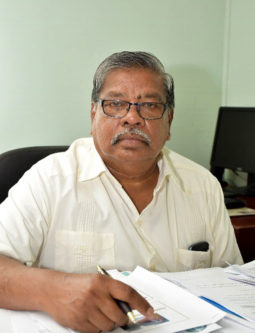The Final Report from the infrastructural assessment carried out by the Guyana Defence Force Engineers’ Corps and the Guyana Water Incorporated in wake of the recent flash floods in Regions Seven and Eight is expected to be handed over to the Civil Defence Commission (CDC) today.
This is according to the Ministry of the Presidency, which in a statement issued last evening said once this is done, the Commission will engage the Ministries of Communities and Indi-genous Peoples’ Affairs to determine responsibility for further rebuilding efforts in the affected communities.

In the meantime, the CDC is working with the Ministries of Agriculture, Communities, Indigenous Peoples’ Affairs and Social Protection to assist the residents in their recovery and rebuilding efforts, as the communities are gradually returning to a state of normalcy.
In addition to this, the Ministry of Agriculture is reviewing assessment reports and is in the process of delivering supplies and other items needed to ensure that farmers can replant in areas where there was crop damage.
As soon as these are acquired, a team from the Ministry will move into the area and begin to work with the affected farmers, the statement said.
Meanwhile, the Director General of the CDC, Colonel Chabilall Ramsarup, who has returned to Guyana after a recent work-related trip said that the agencies of the State as well as other stakeholders will meet on Friday to develop a full plan for the recovery and rebuilding of the villages.
“We are in the recovering and rebuilding stage and we will be having a meeting with the Ministry of Communities, the Ministry of Indigenous Peoples’ Affairs and the Regional Chairmen of Region Seven and Eight to see what exactly is needed by the residents to get them back to their normal lives. For the farmers, the Minis-try of Agriculture will assist in providing seeds and so on,” he shared.
Colonel Ramsarup further noted that, so far, there have been no reports of disease outbreaks in any of the affected regions or villages, nonetheless, the Ministry of Public Health continues to monitor the situation.
Deputy Director General of the CDC, Major Kester Craig, who had led the relief efforts in Colonel Ramsarup’s absence said in addition to the distribution of two weeks’ worth of food supplies to the affected residents in both of the regions, it is also collaborating with the Ministry of Social Protection to provide psychosocial support to the affected residents.
“It is important when communities have been impacted by disasters that we try to listen to them and that’s the whole aim; to see how this disaster is impacting them and their livelihood and how we can guide and support them,” he said.
According to the statement, the CDC on Saturday last also dispatched chainsaws, cutlasses, hoes, spades, shovels, pick axes and other tools to the residents of Kaibarupai, Region Eight, one of the worst affected villages in that region due to the flash flooding last week, to assist in their rebuilding efforts. The residents indicated to the CDC team that they were willing to rebuild, however, they would need assistance in finding the necessary tools.
Meanwhile, Colonel Ramsarup extended praise to officials in Region 7, who during the floods, were able to activate its Disaster Risk Management Committee and effectively respond to the affected areas. As such, the CDC was only tasked with dispatching supplies and offering guidance.
This being said, the Colonel disclosed that efforts are currently being made to establish similar committees in Regions Nine, Ten and Regions Eight and Four by the end of the year.
“We recognise the importance of these plans in all of the regions. We are currently working with Regions Nine and Ten and before the year is out we will be working with Four and Eight. The CDC recognises that it is a small organisation and when there is disaster it doesn’t strike in just one region so we are trying to make all of the regions ready to respond to disasters. We need to have first responders in place so that if something happens people can respond more on the ground because it is the communities, which are first affected,” Colonel Ramsarup shared.




